Teaching Is Human Work. Systems Aren’t Built for That.
Teachers are the great translators of learning–mediators that speak in binary code for the system and in human tongue for the children.
Teachers are the great translators of learning–mediators that speak in binary code for the system and in human tongue for the children.
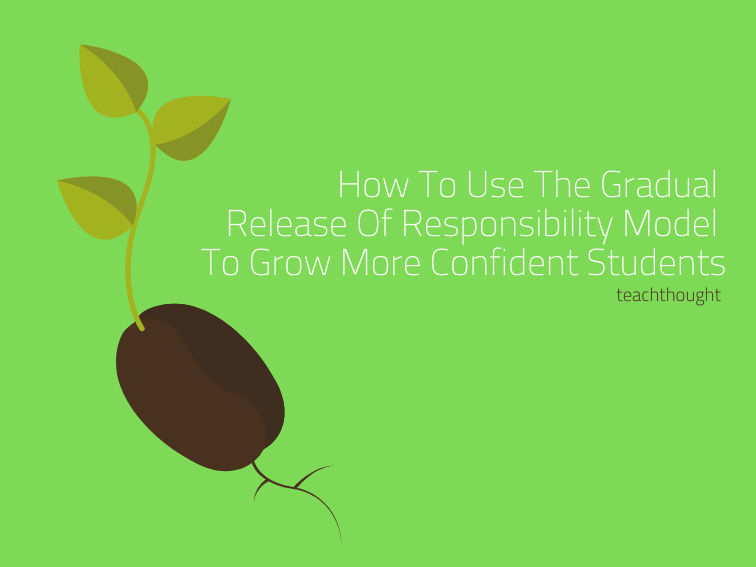
To use the Gradual Release of Responsibility model, students need to see others using it and who better to model it but you?

Education research is great, but it has nothing on what you are able to see every day within your classroom.
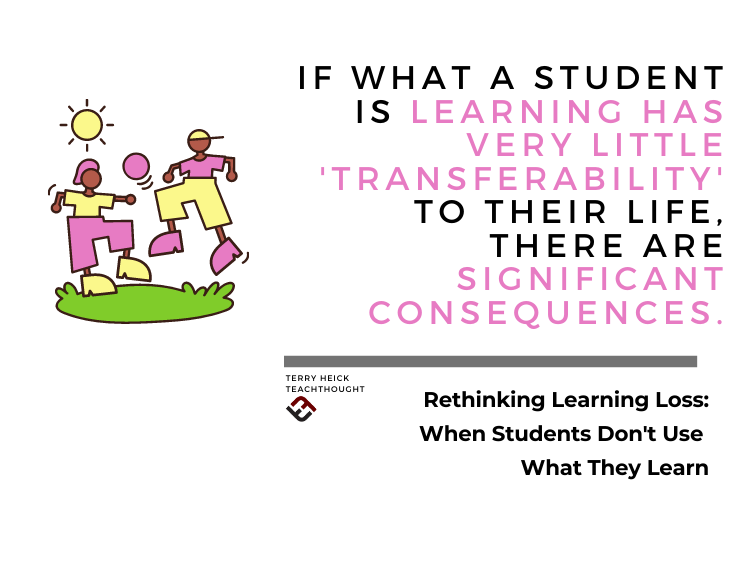
When rethinking learning loss, we should consider ‘transferability’ of knowledge to student life.
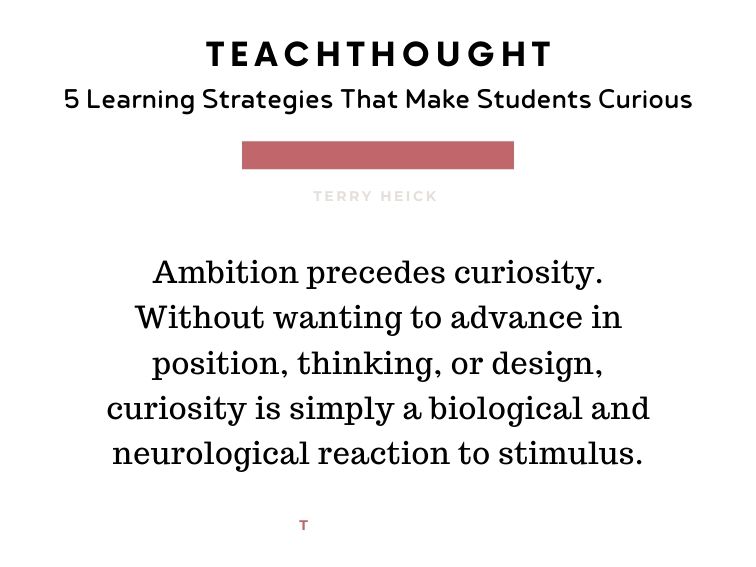
Ambition precedes curiosity. Without wanting to change or grow, curiosity is simply a momentary neurological reaction to stimuli.
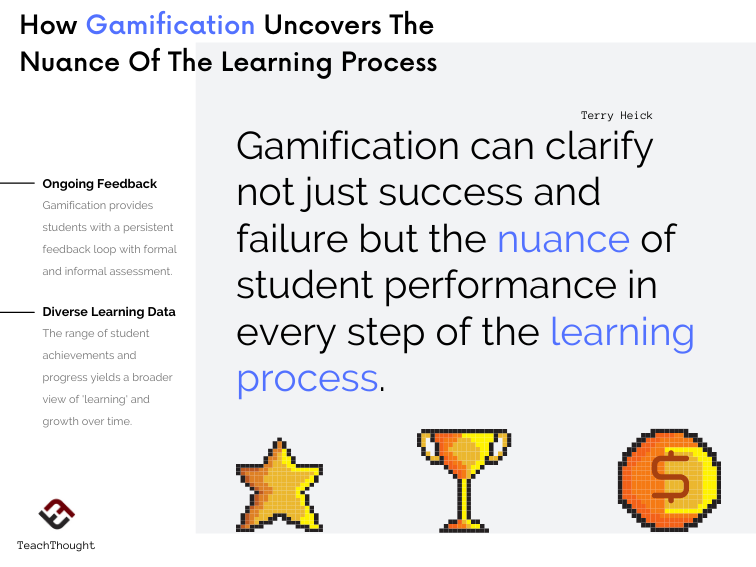
Gamification can clarify not just success and failure but the nuance of student performance in every step of the learning process.
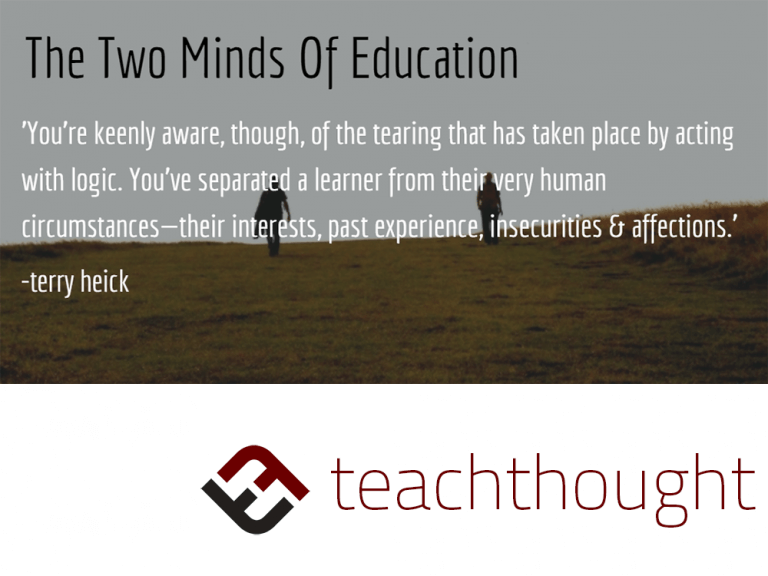
The need to be rational collides with the enormous complexity and scale of the circumstances teachers face.
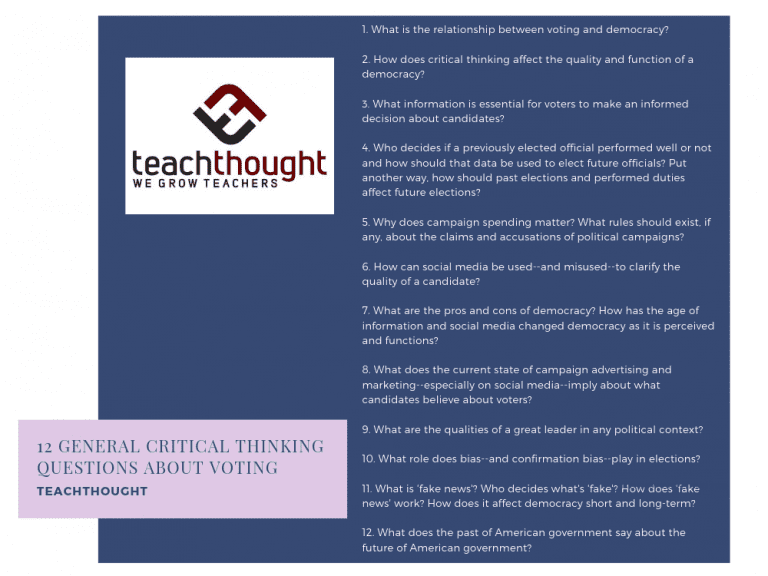
Critical Thinking Questions About Voting & Government by Terry Heick Note: This has been updates from a 2018 version Just a quick post that’s self-explanatory enough: It’s almost #ElectionDay! Some questions for student critical thinking: What is the relationship between voting and democracy? How does critical thinking affect the quality of a democracy? What information…
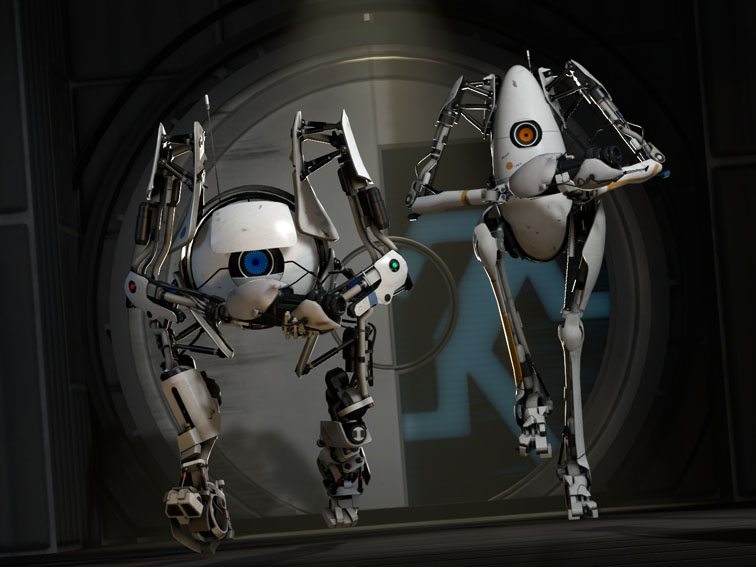
One student engagement strategy is to offer diverse pathways through content–pathways students would have to ‘unlock’ to progress.
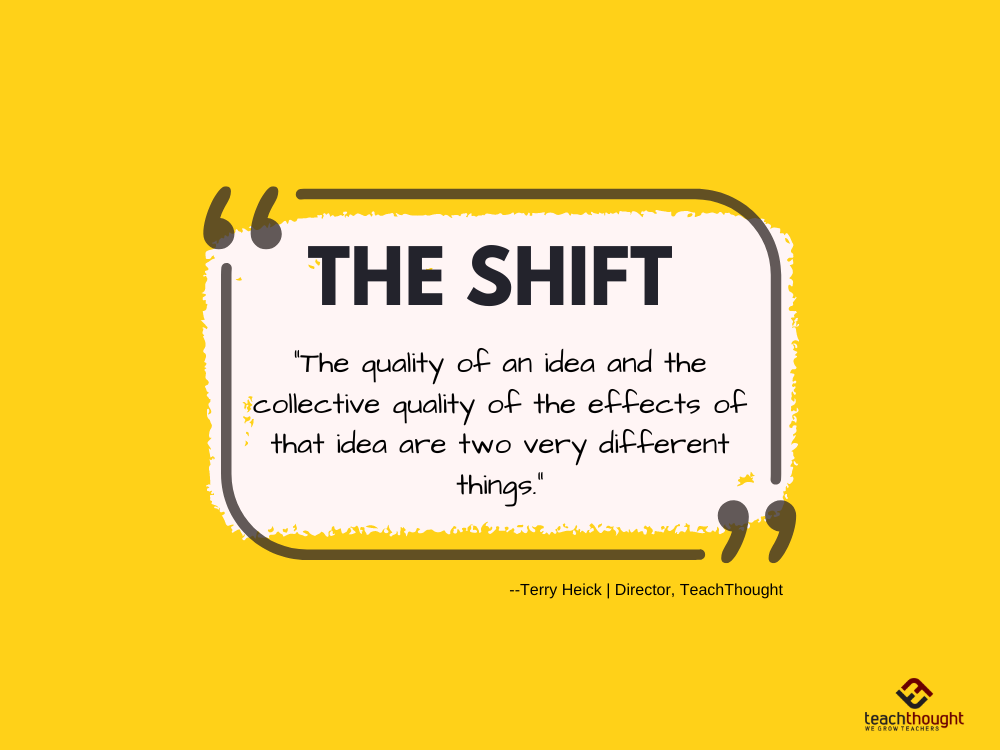
The quality of an idea and the collective quality of the effects of that idea are two very different things.
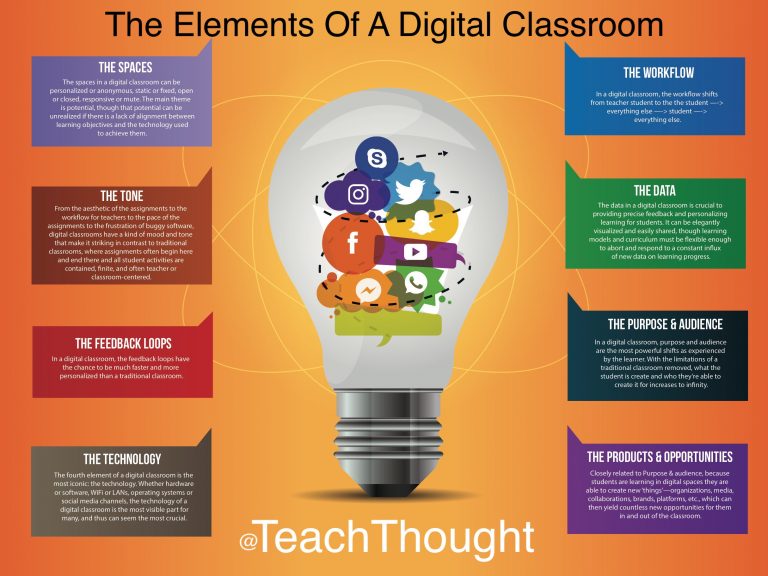
In a digital classroom, teachers can become worried that no ‘real learning’ is happening or that they’ve somehow failed to plan sufficiently.

Our task? Overcome a child’s natural tendency to play, rebel, and self-direct in hopes of providing them with an ‘education.’
End of content
End of content